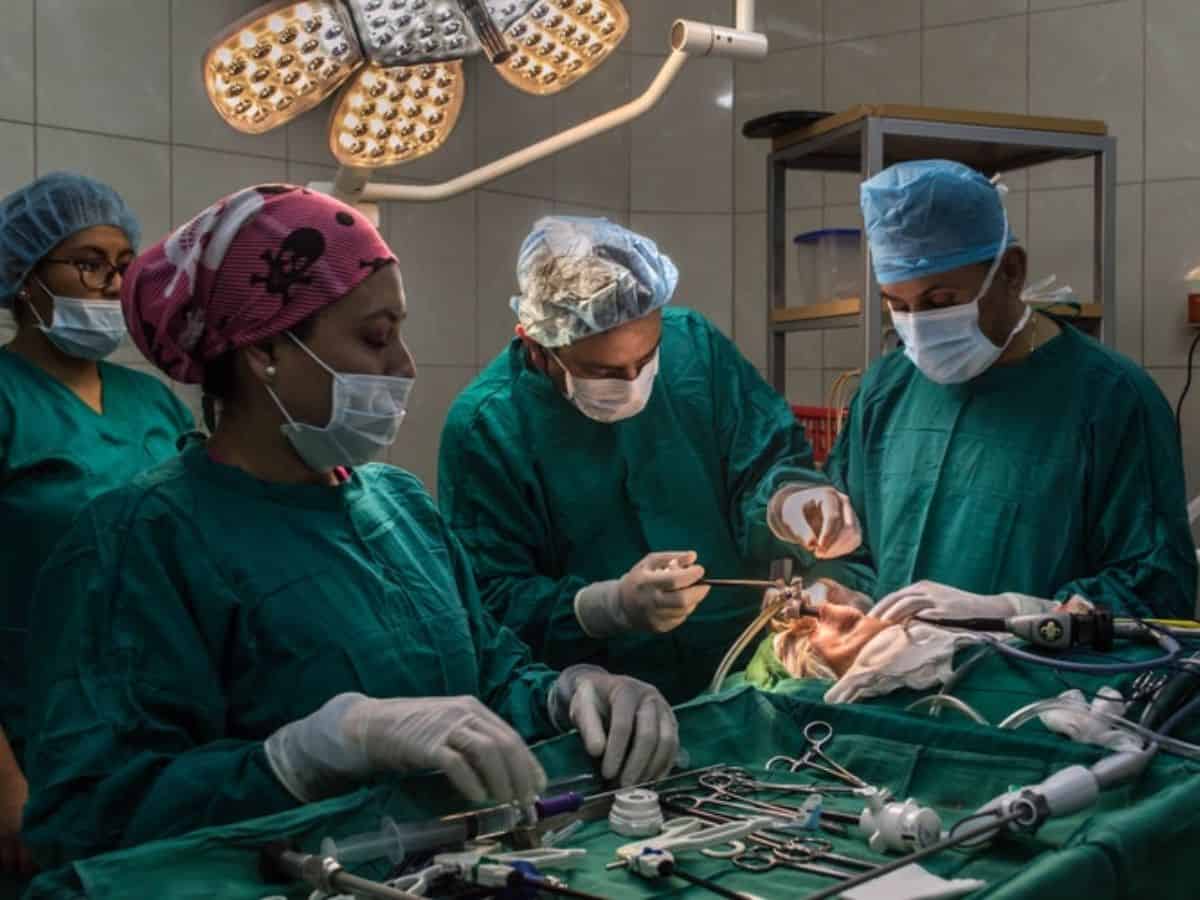
New Delhi: Doctors at ESIC Super Specialty Hospital at Hyderabad’s Sanathnagar have successfully conducted its first in-house organ retrieval on a deceased patient, the Ministry of Labour and Employment said on Wednesday.
The organs — two kidneys and liver — were retrieved from a 45-year-old brain-dead man on Tuesday, and it helped save the lives of three other patients, the ministry said.
“One recipient of one kidney was a 50-year-old female patient, a beneficiary of ESIC, who had been on dialysis for the last 4 years. The liver and one more kidney were allotted to Osmania General Hospital, where two more recipients got the advantage of the donor’s organs and in the process, their lives were also saved,” the ministry said.
Dr. Samson, from the hospital’s neurosurgery team, counselled and educated the attendants about noble organ donation.
The organs were allotted to ESIC by Jeevandhan — a cadaver transplantation programme of the Telangana government.
“The in-house cadaver organ retrieval process involved meticulous planning and coordination among teams of doctors, administration, nurses, and paramedicals,” the ministry said.
India faces one of the lowest organ donation rates in the world. Just 0.1 per cent of the population donate their organs after death. On the other hand, Western countries have 70-80 per cent deceased organ donation.
Telangana had the highest number of deceased organ donors (194), followed by Tamil Nadu (156), Karnataka (151), Gujarat (148), and Maharashtra (105), as per the 2022 data by the National Organ and Tissue Transplant Organisation (NOTTO).
Telangana also topped the charts in terms of deceased donor transplants in 2022, with 655 transplants, followed by Tamil Nadu (553), Karnataka (435), Gujarat (399), and Maharashtra (305).
Earlier this week, Anupriya Patel, Union Minister of State for Health and Family Welfare urged health officials to promote deceased organ donation in India.
This will help “meet the huge need for organ donation in the country”, Patel said, while also urging officials “to take all steps to ensure that no received organs are wasted before getting transplanted”.
